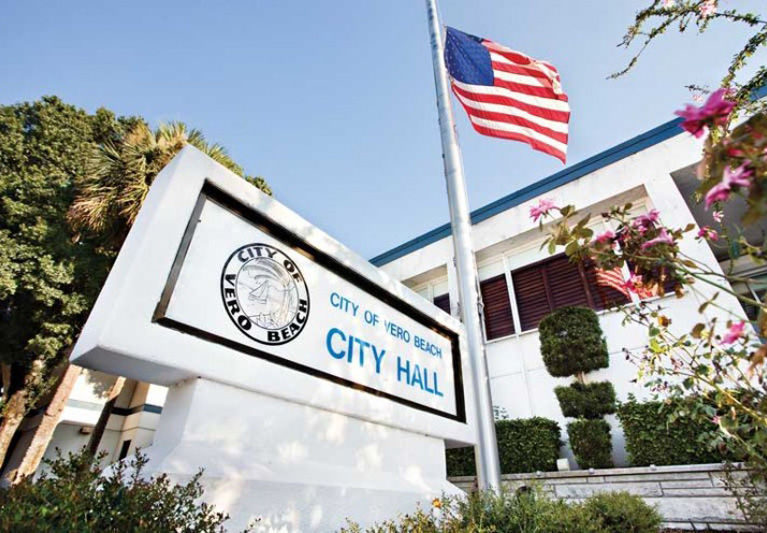
VERO BEACH — The Vero Beach City Council voted Tuesday to hire engineering firm Collective Water Resources to help the city set up a stormwater utility to fund drainage projects that would likely not be completed for more than a decade using property tax revenue alone.
A stormwater utility would tax every improved property in the city limits, including parcels exempt from property tax such as churches. It’s unclear whether all government buildings and schools will have to pay the stormwater tax.
Estimates floated about for the proposed stormwater tax have ranged from $3 to $8 per residence, per month, added onto utility bills for water, wastewater and electricity that are already mailed out to residents. The fee would be assessed by the area of land covered by non-porous surface such as building, paved driveway and sidewalks — not by the value of the property.
Revenues are anticipated to amount to the equivalent of a 25 percent hike in property taxes, though the tax burden would be distributed differently.
For some property owners who pay minimal or no property taxes, it’s a way for the city to glean revenue a different way. Mayor Dick Winger has said, throughout the planning of the stormwater utility, that he can’t imagine anyone being opposed to it, because everyone loves the lagoon.
Several years ago, Vero embarked upon an effort to quantify and to minimize its total daily load of nitrogen and phosphorus going into the Indian River Lagoon from outfalls, or places in the city where water runs off of streets, lawns and other areas and ends up in the river.
As it has the money or can obtain grant funding, Vero has been installing baffle boxes and permeable pavement material to filter out vegetation and debris from the water that ultimately ends up in the lagoon.
The issue of a stormwater utility was raised last year by Winger, who said he had looked at the timetable that the city planned to finish outfitting Vero’s entire system with protective measures and characterized the “crisis” of the lagoon’s health to be too important to wait the 10 to 12 years it would take to afford completing the project.
The city advertised for proposals and a committee was set up to evaluate the pitches from the engineering firms. Though all the firms were deemed more than qualified to do the work, the committee chose Lake Worth-headquartered Collective Water Resources because they have a local presence in Vero and because their engineers are considered top experts when it comes to the legal, financial, technical and regulatory aspects of forming a stormwater utility from scratch.
Councilwoman Pilar Turner voted against entering into a contract with Collective Water Resources as she said, “We have no funds to pay for this” in the current-year budget.
City Manager Jim O’Connor said that the firm would probably not have too many charges this fiscal year, which ends on Sept. 30, and that the contract could be budgeted for in the coming fiscal year starting Oct. 1.
City Attorney Wayne Coment then added that a clause would be added to the contract whereby the city could get out of it if there were no funds approved in next year’s budget.



